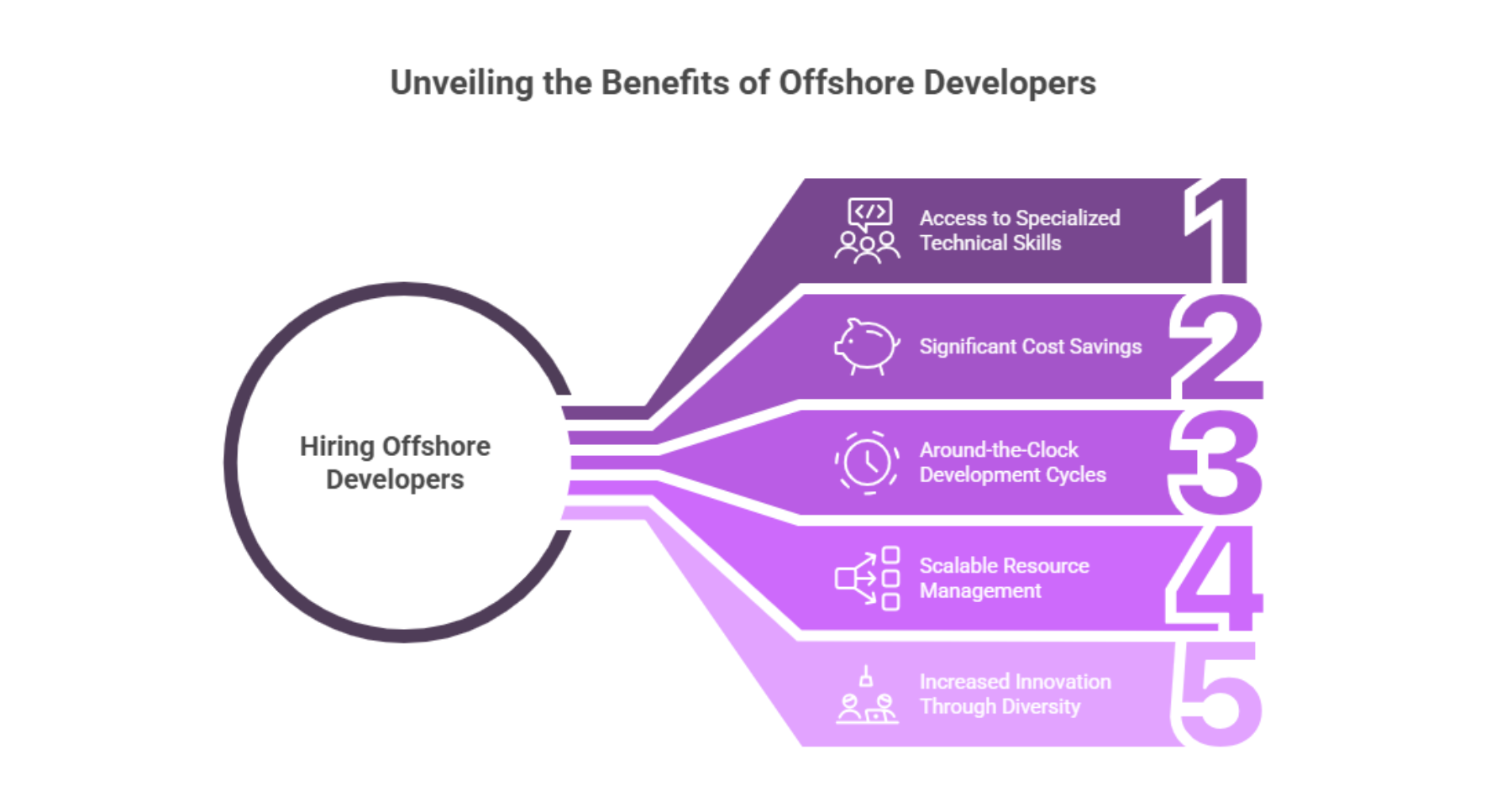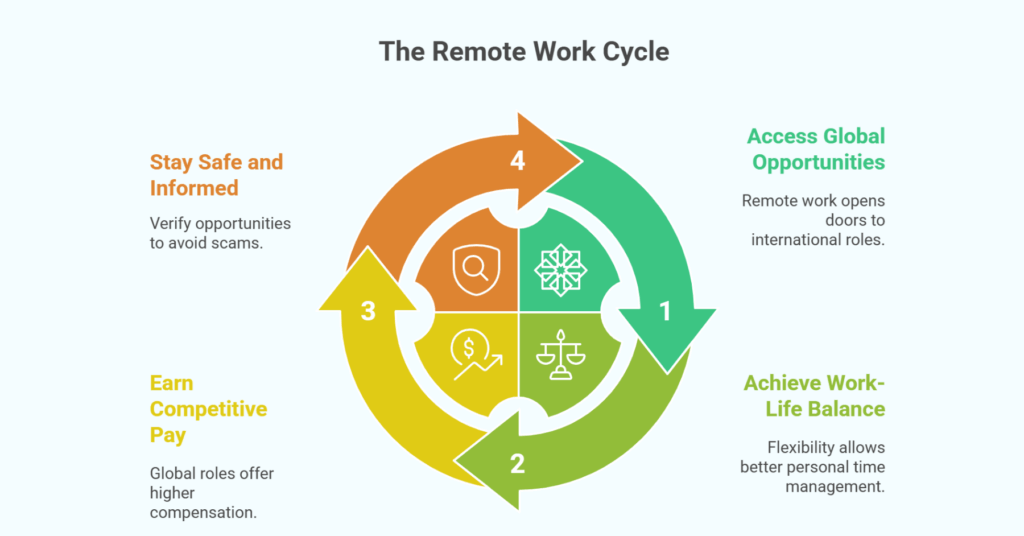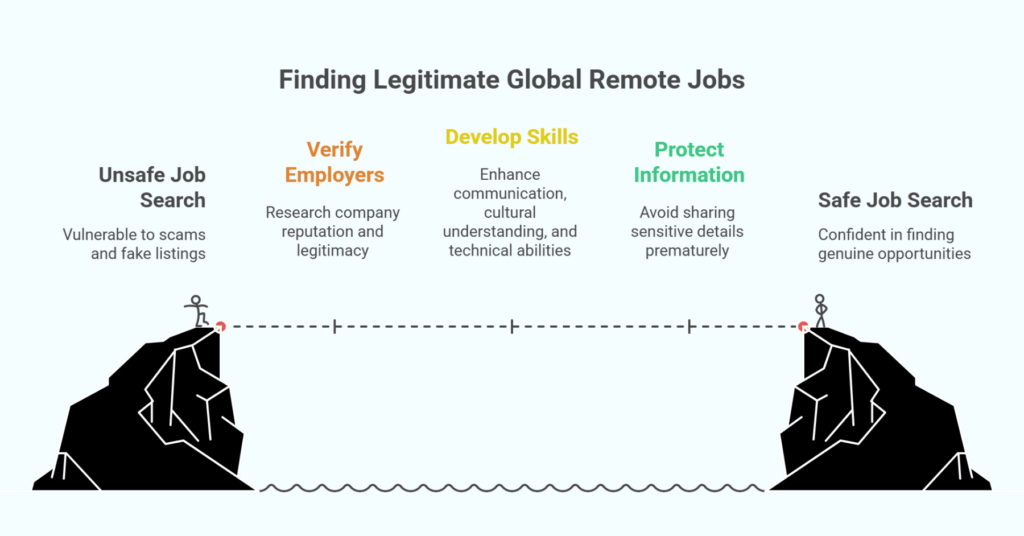“Hire offshore developers to unlock expert tech skills, accelerate your project timelines, and drive innovation with a global team.”
In today’s competitive tech scenario, securing top-tier development talent locally can be prohibitively expensive and time-consuming. Hiring offshore developers offers a powerful alternative: access to a vast pool of highly skilled coders, substantial cost savings, and the flexibility to scale your team rapidly according to project needs. However, onboarding offshore talent requires more than posting a job online. It demands a strategic approach—clarity in role definitions, rigorous vetting processes, robust communication protocols, and compliance with international regulations.
By extending your search beyond domestic boundaries, you tap into specialized expertise—whether it’s front-end frameworks, back-end architectures, or emerging technologies like AI and blockchain. Offshore teams can work in parallel with your in-house staff, delivering around-the-clock progress and accelerated time-to-market. This guide walks you through every phase of the offshore developer hiring journey: defining requirements, selecting the right sourcing channels, conducting thorough assessments, structuring contracts, and ensuring seamless integration. Embracing offshore development is no longer a niche strategy but a forward-thinking imperative that empowers businesses of all sizes to innovate and grow without geographic constraints.
1. Why Hire Offshore Developers?
Hiring offshore developers unlocks strategic benefits that elevate your organization’s tech capabilities and financial performance.
-
Access to Specialized Technical Skills:
Offshore markets often boast deep talent pools proficient in various programming languages, frameworks, and methodologies. This access allows you to fill specialized roles—such as DevOps engineers, mobile app developers, or data scientists—without compromise. Tapping into global expertise enhances product quality and accelerates innovation, as your projects benefit from developers who bring diverse experiences and best practices gleaned from international projects. -
Significant Cost Savings:
By hiring developers in regions with lower living costs, companies can reduce salary expenses by up to 70% compared to local rates. These savings extend beyond wages to include decreased overhead for physical office space and employee benefits. Redirecting these funds into R&D, marketing, or new hires can boost competitiveness and fuel growth initiatives. -
Around-the-Clock Development Cycles:
Offshore teams in different time zones enable continuous progress. While your in-house team wraps up their day, offshore developers push code, fix bugs, and run tests, ensuring 24/7 momentum. This “follow-the-sun” model reduces time-to-market and enhances responsiveness to urgent issues, providing a clear advantage in fast-paced industries. -
Scalable Resource Management:
Offshore staffing offers unparalleled flexibility to scale your team up or down based on project demands. You can quickly onboard additional developers for a product launch and reduce headcount after completion. This agility minimizes idle capacity and aligns labor costs directly with business needs. -
Increased Innovation Through Diversity:
Bringing together developers from varied cultural and educational backgrounds fosters creative problem-solving. Diverse teams challenge assumptions, introduce novel approaches, and drive innovation by blending perspectives. This rich tapestry of ideas often leads to breakthrough functionalities and more robust software solutions.
2. Step-by-Step Guide to Hiring Offshore Developers
Follow this structured approach to identify, evaluate, and integrate offshore development talent successfully.
-
Define Clear Technical and Cultural Requirements:
Start with detailed job descriptions that specify programming languages, years of experience, project types, and desired methodologies (e.g., Agile, Scrum). Include soft skills such as communication, teamwork, and adaptability to remote collaboration. Clear requirements help offshore partners and recruiters present only the most qualified candidates, reducing your screening workload. -
Choose Reliable Sourcing Channels:
Use a combination of offshore-focused recruitment agencies, global freelancing platforms, and specialized developer networks (e.g., GitHub, Stack Overflow). Evaluate each channel’s vetting processes, success rates, and compliance support. A diversified sourcing strategy ensures access to both full-time developers and short-term contractors for maximum flexibility. -
Implement Comprehensive Skills Assessments:
Assess candidates through coding tests, live coding sessions, and portfolio reviews. Tools like HackerRank and Codility provide standardized evaluations for algorithms, data structures, and real-world problem solving. Combine technical assessments with behavioral interviews via video to gauge cultural fit, communication style, and remote work readiness. -
Draft Legally Compliant International Contracts:
Partner with legal and HR experts to create contracts covering compensation, intellectual property rights, confidentiality, termination terms, and dispute resolution. Ensure adherence to local labor laws and tax regulations in the developer’s country. Well-defined contracts protect your interests and establish transparent expectations for both parties. -
Onboard and Integrate Seamlessly:
Design an onboarding plan that includes introductions to team members, training on your tech stack, and orientation to company workflows. Provide access to collaboration tools (e.g., Slack, Jira), coding repositories, and documentation. Assign a mentor or technical lead to guide offshore developers through their first projects and schedule regular check-ins to maintain alignment and engagement.
3. Solutions Provided by Remote Recruit
Remote Recruit is the ultimate platform for hiring offshore developers and supporting global tech teams. For employers, Remote Recruit offers AI-driven candidate matching that aligns your specified requirements with a curated pool of pre-vetted developers. Its integrated video interview and coding assessment tools streamline screening, ensuring you evaluate both technical proficiency and cultural fit. Compliance modules handle contracts, payroll, and local regulations, eliminating administrative hurdles and legal risks.
For developers, Remote Recruit provides personalized job recommendations based on skills and experience, along with resources like interview coaching and technical portfolio optimization. The platform’s secure payment system and transparent contract management guarantee timely compensation and clear working terms. With dedicated support throughout the hiring lifecycle, Remote Recruit simplifies the process of building high-performing offshore development teams, allowing you to focus on delivering exceptional software solutions.
4. Conclusion
The future of work is undeniably global, and hiring offshore developers has evolved from an option to a strategic necessity for innovative companies. By tapping into specialized skills worldwide, achieving significant cost efficiencies, and leveraging around-the-clock development cycles, businesses can accelerate product roadmaps and respond swiftly to market demands. However, success requires a methodical approach: articulating clear requirements, choosing reliable sourcing channels, conducting rigorous assessments, securing compliant contracts, and delivering structured onboarding. Remote Recruit consolidates these best practices into one powerful platform, offering AI-driven matching, integrated compliance, and robust assessment tools that mitigate risk and streamline offshore hiring. Embrace the global workforce today to build agile, diverse, and cost-effective development teams that drive your organization forward.
Frequently Asked Questions (FAQs)
1. What roles can I successfully hire offshore?
Common offshore roles include software developers (front-end, back-end, full-stack), DevOps engineers, QA testers, and data analysts—positions that rely on robust digital collaboration.
2. How much can I save by hiring offshore developers?
Depending on the region, companies often save between 30% and 70% on labor costs, considering both lower salaries and reduced overhead expenses.
3. How do I manage communication with offshore teams?
Utilize collaboration tools like Slack, Zoom, and Jira, establish overlapping work hours, and schedule regular stand-ups and progress reviews to maintain alignment.
4. What legal considerations apply when hiring offshore developers?
You must comply with local labor laws, tax regulations, and intellectual property protections. Using an EOR service or legal partner can simplify compliance.
5. How does Remote Recruit streamline the offshore hiring process?
Remote Recruit offers AI-powered matching, integrated video interviews, coding assessments, and compliance support to handle contracts, payroll, and local regulations, ensuring a smooth offshore recruitment experience.




